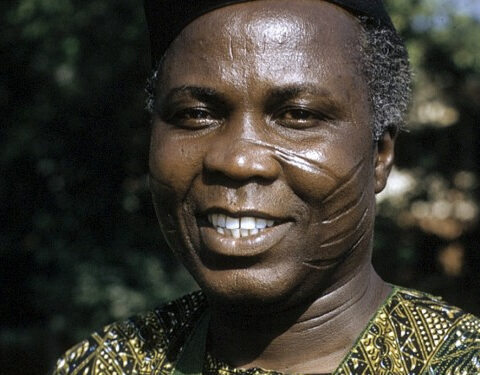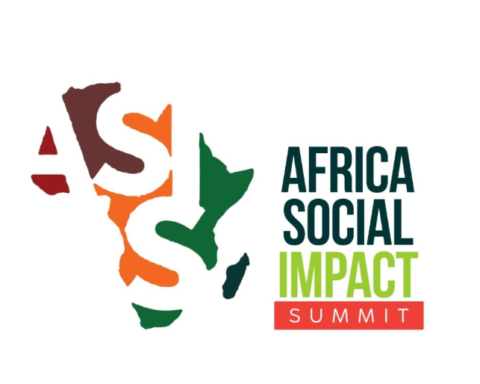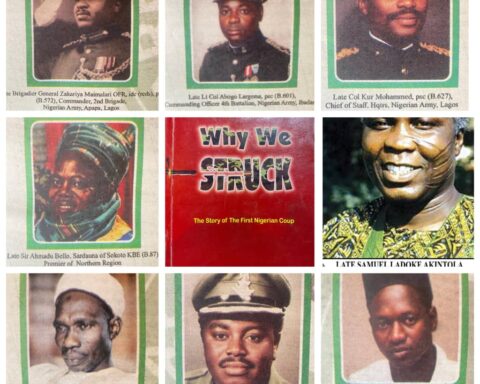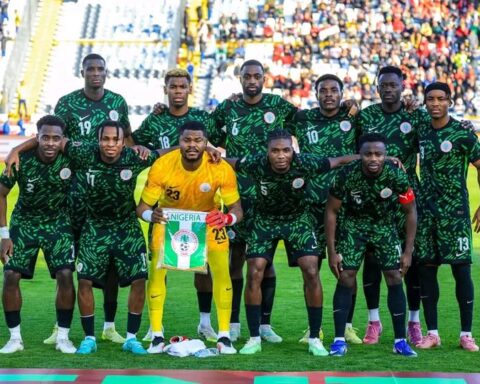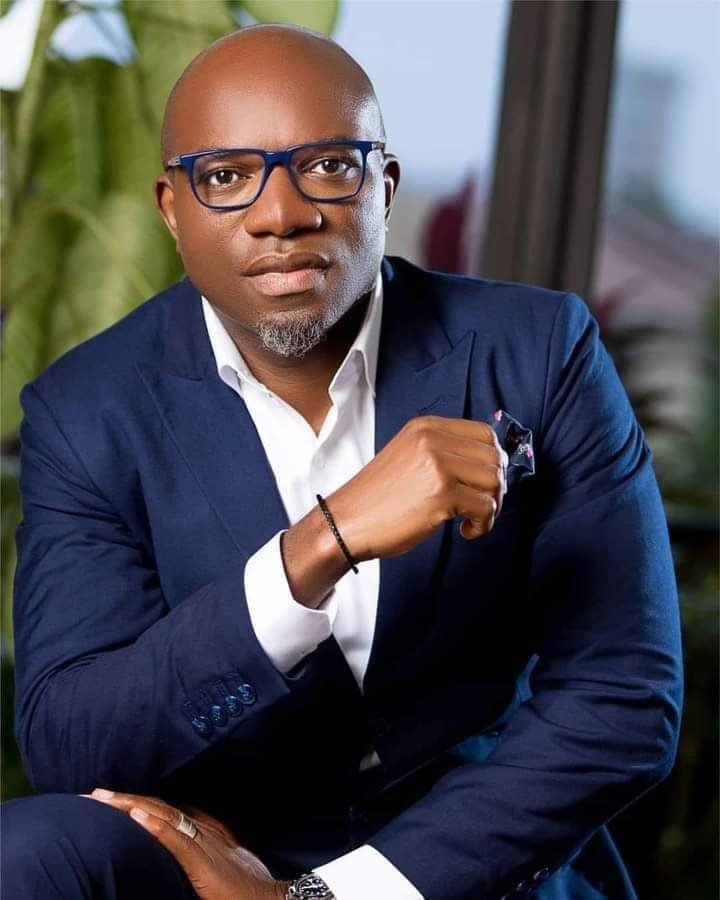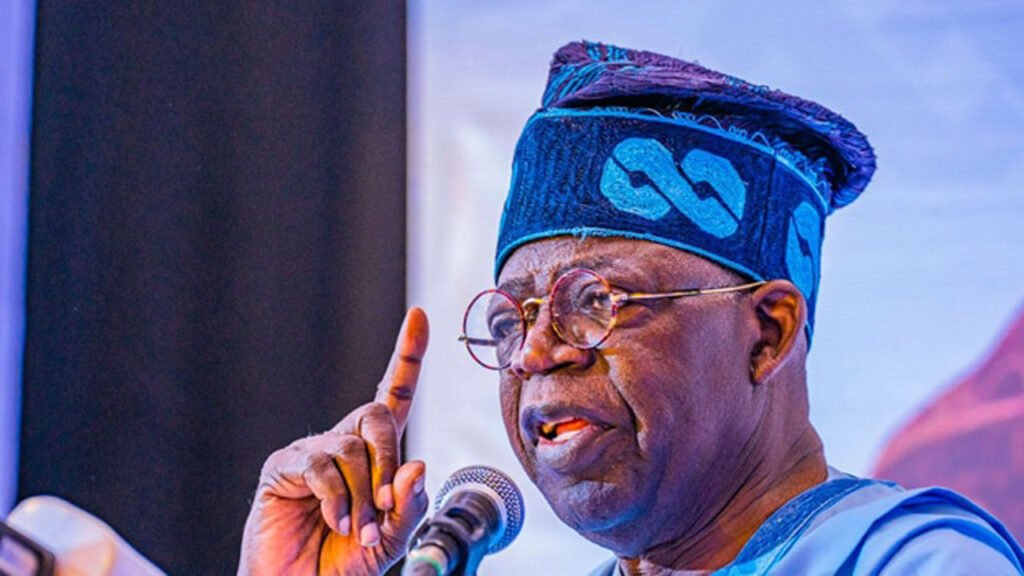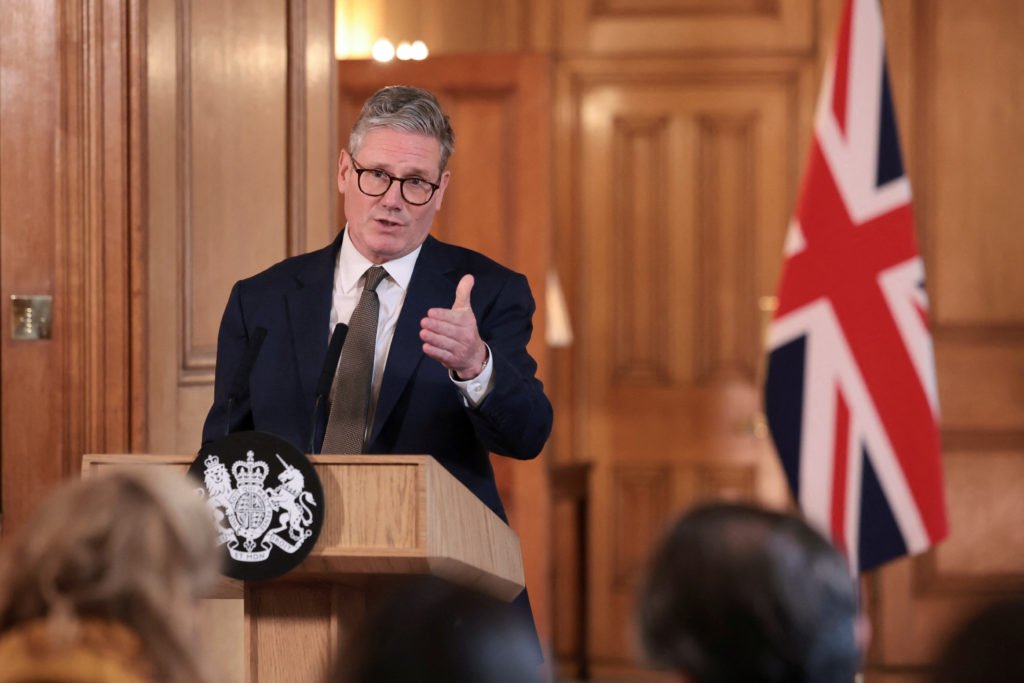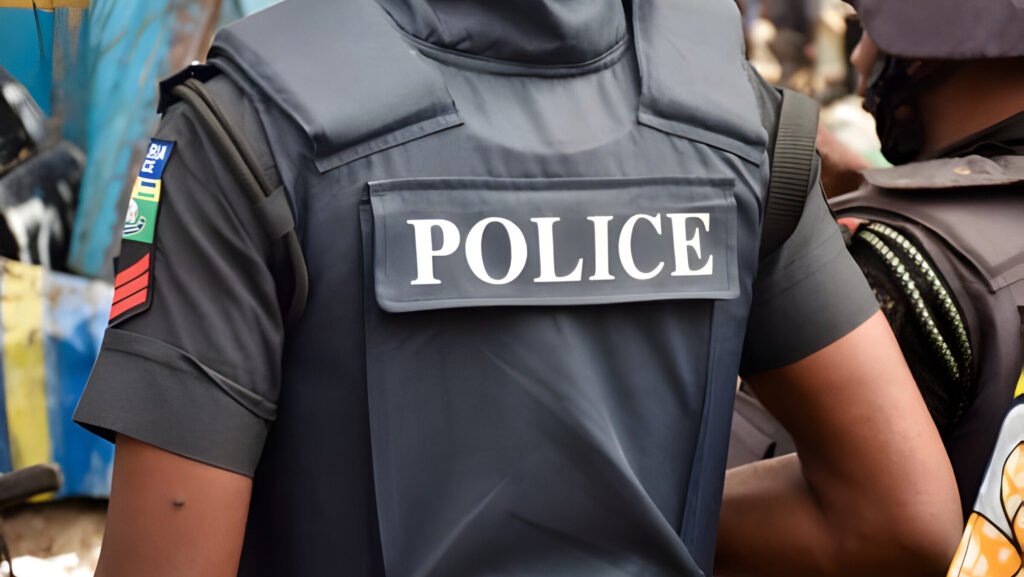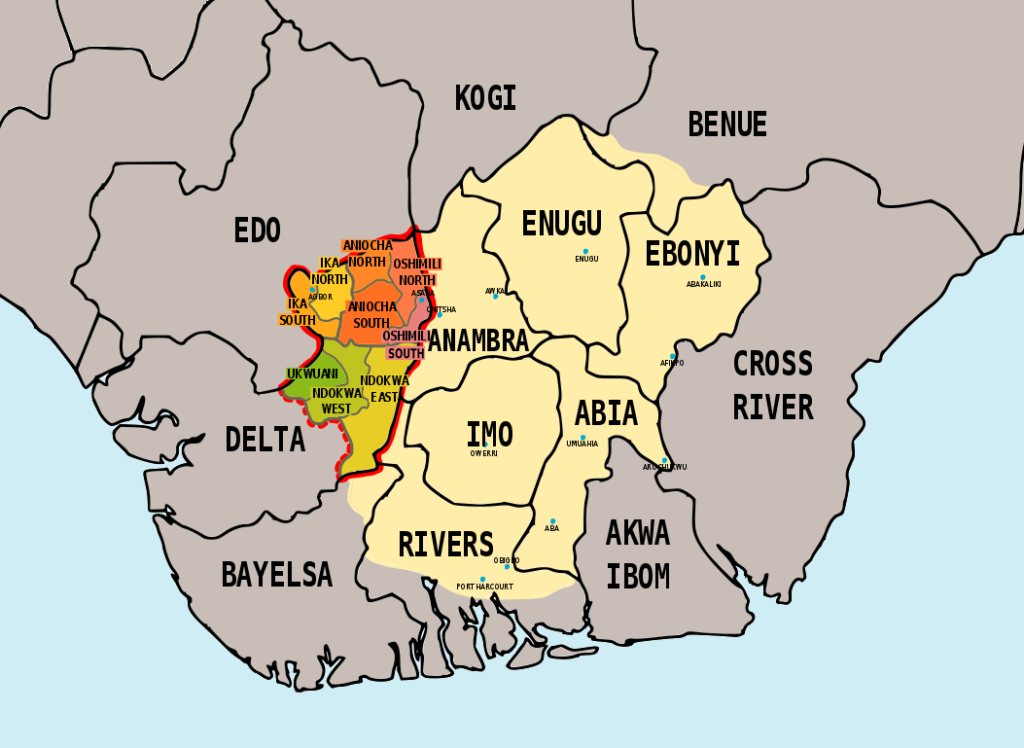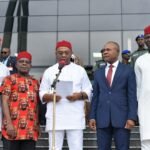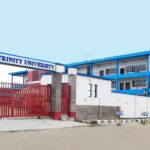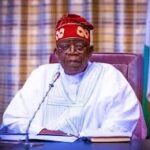The Daily Query Hard Beat is a weekly editorial insight into various aspects of the nation’s, even the world’s, socio-political, cultural and economic life. It is designed for editors at Daily Query to ask hard questions (hence the hard beat as in the reporter’s beat) with a view to illuminating many aspects of Nigeria’s national life, in search of requisite answers.
In this debut report, ADEMOLA TIJANI takes us back to Nigeria’s poor outing at the France 2024 Olympics and argues that there is a need to ask questions about the monumental failure of the contingent despite the humongous amount – a whopping $8m – spent by the country’s taxpayers to take them to the Games and back.
Nigeria made her debut at the Helsinki Olympics in 1952. It wasn’t until the 1964 Tokyo Olympics that the country won its first medal, with Nojim Maiyegun capturing a bronze in the men’s light-middleweight boxing event. Over the years, Nigerian athletes have consistently made their mark at major international competitions. Chidi Imoh, for instance, excelled in the 200 meters, while Innocent Egbunike competed in the 400 meters. Davidson Ezinwa also reached the finals in these prestigious events. Notably, athletes such as Modupe Oshikoya and Falilat Ogunkoya made significant contributions in the 400 meters. The 4×100 meters female relay team, including athletes like Onyali and Iheagwam, also achieved impressive results, leaving a lasting legacy in the nation’s sporting history.
With a whopping N12bn (equivalent of $8m), spent for 82 athletes to attend and participate in the 2024 Olympics, would such a huge expenditure on the outing have been justified even if the country had won medals? To make matters worse, Nigeria ended up without a single medal after the country had splashed an entire $8m on its contingent to participate in the admittedly world-important sporting event. Worse still, such a monumental failure was recorded by the country at the 2024 France Olympics and no questions are being asked – at least there is no indication to that effect yet!
In contrast to the performance of the nation’s ‘able bodied’ France 2024 Olympics contingent, the Nigeria Paralympics team achieved remarkable success at the Paris Paralympics, what with their 27 Medals haul, including 9 Gold Medals, 10 Silver Medals and 8 Bronze Medals, marking a significant milestone for the country in the realm of adaptive sports. The Nigerian athletes excelled in athletics, powerlifting and para-swimming, among others.
Shouldn’t this, then, lead to greater concentration of efforts on the development of the sports for the Paralympics team than the main Olympic team?

But, what really happened?
According to Daily Query checks, Nigeria has a history of winning 27 medals over 19 appearances at the Games, including three gold medals. The country’s first two gold medals were earned during the Atlanta 1996 Olympics, one by long jumper Chioma Ajunwa and the other by the Nigerian football team. Additionally, at the Sydney 2000 Olympics, the Nigerian men’s 4×400 meters relay team, consisting of Clement Chukwu, Jude Monye, Sunday Bada, and Enefiok Udo-Obong, secured a gold medal, further contributing to the nation’s illustrious record in international athletics.
Nigerians had high hopes for their large contingent of 82 athletes, anticipating at least one, two, or even three podium finishes. The optimism was fueled by the presence of several standout performers, including Tobi Amusan, a world record holder in the women’s 100 meters hurdles, and some of the world’s top women wrestlers, such as Odunayo Adekuruoye and Blessing Oborodudu. The team also featured a mix of promising track and field athletes. However, despite these expectations, the results were disappointing.
On the contrary, other African nations collectively secured a total of 13 gold, 12 silver, and 14 bronze medals, with Kenya leading the medal count. Other countries that achieved notable successes included Algeria, South Africa, Ethiopia, Egypt, Tunisia, Botswana, Uganda, Morocco, Cape Verde, Côte d’Ivoire, and Zambia.

Daily Query has found several perplexing issues regarding the performance of the France 2024 Nigerian contingent. These issues span various aspects of the preparation and execution of the games. Concerns have been raised about the overall preparation of the athletes, including the adequacy of their training and readiness for competition. Another critical issue is the welfare of the athletes, which encompasses their living conditions, medical support and general well-being during the games.

Additionally, questions have been raised about the number of officials involved and whether their presence and roles were justified. There is also the question of whether the substantial financial investment made—amounting to N12bn overall—was spent judiciously and whether there can be any rational explanation for such a humongous expenditure on failure.
Furthermore, there is a notable concern about instances where Nigerian athletes, despite their training and potential, have chosen to compete and win accolades for foreign countries rather than representing Nigeria. These issues collectively contribute to the broader discussion on the effectiveness and management of the country’s sports programmes.
Some four months ago, on Saturday, June 1 to be precise, a crucial ministerial strategic technical meeting was held at the Moshood Abiola National Stadium in Abuja. This meeting brought together Senator John Enoh, the Minister of Sports Development, and various key figures including the presidents, secretaries, and technical directors of the national sports federations. The meeting marked the official start of preparations for the upcoming event, with plans set to span across five centers: Abuja, Lagos, and Bayelsa States.
Despite the extensive media coverage and hype surrounding the high level of preparation for the games, there was a notable shortfall in the outcomes. The Minister of Sports, John Owan Enoh, took responsibility for the inadequate training of the athletes, publicly acknowledging the shortcomings. During this acknowledgment, he issued an apology to the Nigerian people on behalf of the athletes, expressing regret for the underwhelming performance despite the considerable media attention and substantial financial investment.
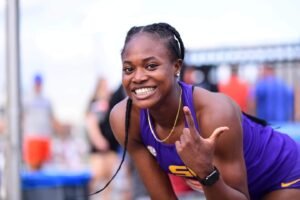
This raises questions as to how such a high-profile event, supported with a huge financial outlay and media hype, could still end up such big flop.
Daily Query reports that a princely N136m (approximately $85,000) was spent on each member of the Nigerian contingent to the Olympics, a huge expenditure that highlights a stark contrast in relation to the results achieved by other countries. For instance, Jamaica, which spent only $2,300 on each of its athletes, managed to secure a total of six medals, including one gold, three silver, and two bronze.
According to the VOA, Olympic and Pulse Sports, other African countries had varying expenditure levels, which, however, could be justified by the results achieved. South Africa reportedly spent around $7 million while Ethiopia’s expenditure ranged between $3 and $4 million. Morocco, Algeria, and Tunisia each spent between $2 and $4 million. Collectively, African nations that won medals at the Paris 2024 Olympics are estimated to have spent between $25 million and $30 million on their Olympic campaigns. This estimate encompasses all associated costs, including preparation, training, logistics, and participation. On average, this equates to about $2 million per country. Nigeria alone spent all of $8m with practically nothing to show for it, but for the redemptive outing of the nation’s Paralympics contingent.
During the 2020 Tokyo Olympics, Nigeria allocated approximately ₦2.3 billion (roughly $5.6 million) for the campaign. Taking into account inflation and the expanded scale of preparations required for the Paris 2024 Olympics, it is reasonable to estimate that the budget for the Paris outing was significantly higher. But that is where the comparison ends, for while Tokyo was a great outing, France 2024 came and went as a big flop: the nation spent such a huge amount for practically nothing, had the Paralympics team not redeemed the situation.

Needless to emphasize that our budget range is notably higher compared to the average amounts spent by other African countries that achieved success at the Olympics. This suggests a need for a more effective allocation of resources to improve performance outcomes in future.
What, for instance, could have led to the unfortunate situation involving Favour Ofili, a Nigerian professional sprinter who dedicated years of rigorous training in preparation for the 2024 Olympics, only to have her name carelessly and erroneously removed from the list of athletes competing in the 100 meters race? This serious oversight by Nigerian sporting authorities not only undermined her efforts but also raises questions about the management and organization of the team.
Similarly, there is the case of Annette Echikunwoke, a former Nigerian hammer thrower who switched her allegiance to the United States. After making this transition, she went on to secure a medal in the recent Olympics.
Her success highlights an important issue: the loss of talented athletes who, due to various reasons, not the least their mishandling, even neglect, choose to represent other countries. These cases prompt critical questions about the effectiveness and efficiency of the processes governing athlete selection and support, as well as the broader implications for Nigerian sports. The answers to these questions are crucial for understanding and addressing the gaps in the system that have led to such disappointing outcomes.
The Ofili and Echikunwoke situations are not isolated incidents but rather part of a broader pattern. For example, Francis Obikwelu, a Nigerian athlete, became a Portuguese citizen in 2001. Subsequently, he achieved remarkable success, winning a silver medal in the 100 meters at the 2004 Athens Olympics. Obikwelu set a European record with a time of 9.86 seconds, a record that remains unbroken to this day. Additionally, he became a multiple-time European champion, further establishing his prominence in the sport.
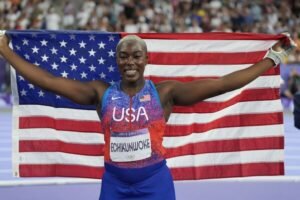
Another notable case is Ezinne Okparaebo, a Nigerian-born sprinter who represents Norway. Okparaebo holds the Norwegian record in both the 60 meters and the 100 meters. She has competed for Norway in several international events, including the Olympics, showcasing her exceptional talent on a global stage.
Similarly, Glory Alozie, who initially competed for Nigeria, won a silver medal in the 100 meters hurdles at the 2000 Sydney Olympics. However, after her successful stint representing Nigeria, she switched her allegiance to Spain. Alozie continued her competitive career internationally, now competing under the Spanish flag.
These instances illustrate a recurring trend of athletes shifting national affiliations, often resulting in impressive achievements for their new countries.
Daily Query has also conducted inquiries into the widely discussed topic of sports development at the grassroots. Grassroots sports development in Nigeria is widely acknowledged as essential for discovering and nurturing future talents, which in turn is crucial for maintaining success across various sporting fields. Despite Nigeria’s commendable history of achievements in athletics, football, and basketball, the development of sports at the grassroots level has consistently encountered numerous challenges.
Over the years, various initiatives, both governmental and private, have sought to tackle these challenges and promote sports at the grassroots level. However, the tangible results of these efforts are still awaited.
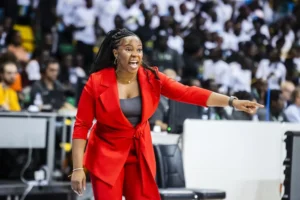
Given the level of financial investments made by the government, there is growing anticipation about whether the Tinubu administration will address this issue more effectively. One potential step could be the establishment of a special committee dedicated to investigating the reasons behind Nigeria’s poor performance at the France 2024 Olympics, despite substantial financial backing.
Such a committee would ideally focus on implementing comprehensive and robust sporting policies to enhance the nation’s competitiveness, going forward. Given its rich sporting potential, Nigeria does not deserve to experience such disappointing outcomes again in the future.
A focused and well-executed strategy is necessary to ensure that the country’s sports development aligns with its high aspirations and investment levels.

